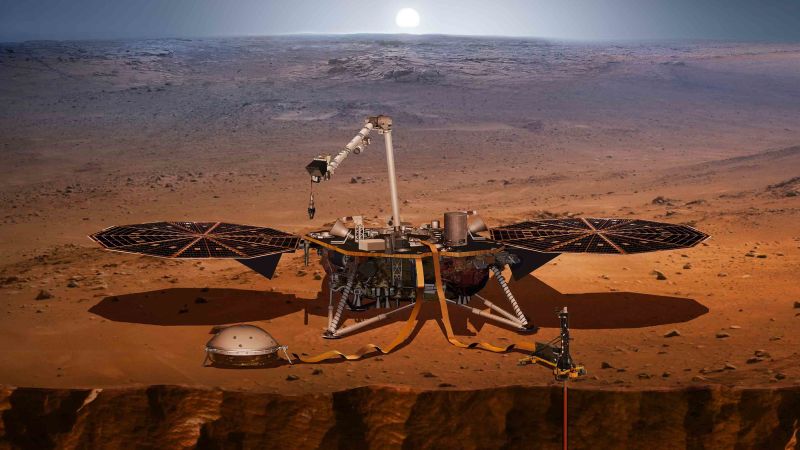- cross-posted to:
- nasa
- cross-posted to:
- nasa
More quickly than…?
The headline sucks, but the answer is in the 2nd paragraph.
Days are getting shorter by less then 1ms per year.
I wonder if this means eventually Mars will become a tidal locked eyeball planet?
That would only be if it STOPS spinning IIRC.
It’s spinning faster.
Oh I misunderstood and got it backwards, spinning faster comes with other interesting problems to mitigate against.
ummm, the opposite of earth, where the angular speed is decreasing
edit: earth’s deceleration is caused by tidal forces, mar’s could be by some diameter reduction, like an spinning dancer pulling their arms, maybe because the core is cooling or surface land/ice eroding/melting
It didn’t mention this in the article, but I believe that if the martian moons were getting closer to the planet, it would shorten the day (based on my understanding of the Earth/Moon system and how our day has been getting longer as the Moon has moved away). I wonder if they are.
I believe the moon must be orbiting faster than the planet’s spin for that to happen (both the moving closer and the spin acceleration).
And, looking it up, that is indeed the case for Phobos, the larger of Mars’ moons, and it is getting closer and will eventually either break up or crash into the planet, while also applying a force that increases Mars’ spin rate.
Deimos is orbiting slower, so won’t share that fate, though maybe it’s orbital radius will increase enough for it to escape the Martian system, though I doubt it since it’s already close to the Martian day.
Cool, thanks!
This got me curious as to when and how fast Phobos is spiraling inward and found this on NASA’s website.
Phobos is gradually spiraling inward, drawing about six feet (1.8 meters) closer to the planet each century. Within 50 million years, it will either crash into Mars or break up and form a ring around the planet.



